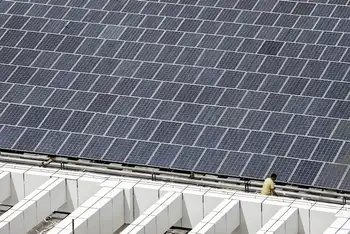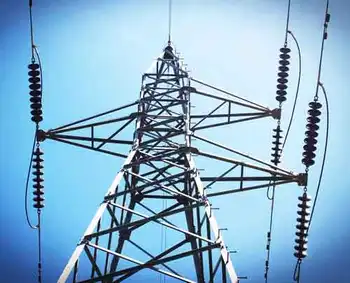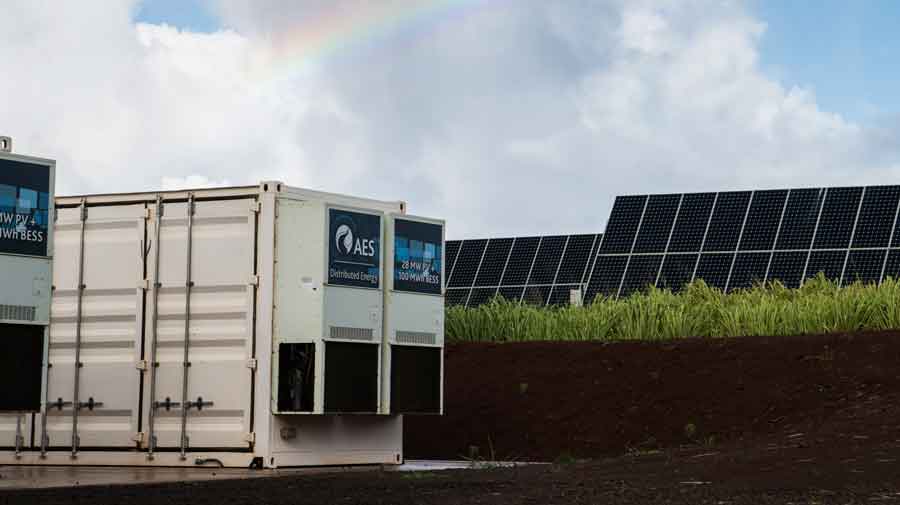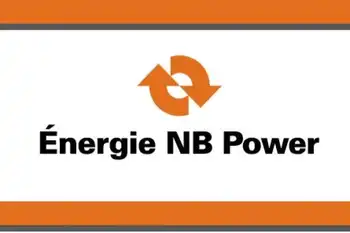Ameren nuclear plan triggers debate over funding
By Associated Press
Substation Relay Protection Training
Our customized live online or in‑person group training can be delivered to your staff at your location.

- Live Online
- 12 hours Instructor-led
- Group Training Available
The debate hits on energy production, consumer protection, economic development and environmental concerns.
St. Louis-based utility AmerenUE has filed an application with federal regulators to build a second reactor at its Callaway County facility near Fulton. In mid-December, the Nuclear Regulatory Commission accepted the application, signaling the paperwork is sufficient to begin sifting through the 8,000-page license request.
For Missouri lawmakers, the issue focuses on billions of dollars worth of economic development and a law approved overwhelmingly by voters in 1976.
That measure bars Missouri's investor-owned utilities from adding the cost of new a plant to electrical rates until the facility is online. Utilities can recover debt and financing but not until after a new plant is producing power.
Three decades later, Ameren wants the law repealed for electrical plants that use nuclear and other new technology energy sources. But one consumer activist calls the ban the final pro-consumer law left in Missouri's legal code.
That leaves lawmakers caught in between, salivating for a construction bonanza that could equal about one-third of the state's budget but worried about protecting electrical customers from a price spike.
"We are going to have a lively debate," said incoming House Speaker Ron Richard, R-Joplin.
Richard said the Callaway 2 project is a huge economic development opportunity that could include a new Missouri River bridge at Chamois and the eventual expansion into Callaway 3 and Callaway 4 nuclear plants.
But Richard wants options and consumer protections. He said one idea is a joint venture with the utility, meaning the state puts up some financing and gets part of the profits.
So far, Ameren's stance has been repeal the law, or forget about the new reactor.
Testifying before utility regulators last year, AmerenUE president Thomas Voss said that to pay for the project the utility needs to start recovering construction costs before the plant is online. Ameren Corp., the parent company for AmerenUE, is worth about $9 billion; a second Callaway plant is estimated to cost about that much.
Warren Wood, head of a trade group for Missouri investor-owned utilities, estimated that by waiting until the end of construction on Ameren's first nuclear reactor to start recouping costs, financing alone added about $1 billion. Many of the alternative financing options are less efficient than removing the law, he said.
He compared the effect of Missouri's current law to other consumer purchases.
"If you go out and buy a big screen TV on a credit card and sit on it a few months before paying, you'll end up paying a lot more," said Wood, the president of the Missouri Energy Development Association.
Missouri Public Counsel Lewis Mills, who advocates for utility consumers before state regulators, said the 1976 law has served consumers and utilities well. Mills said there are multiple ways to pay for Callaway 2 and the debate needs to be broadened beyond an option that Ameren prefers.
Consumer activists accuse Ameren of trying to pass the risk of a new investment off to those who must use the company because of the utility's electric monopoly.
John Coffman, who represents Missouri AARP and the Consumers Council of Missouri, said it's unfair for Ameren to get any guarantees that it can collect money for plant construction until the new facility is operational and found to be useful for ratepayers.
"If we, the citizens, are going to be the investor of this power plant or investors in the company, then the citizens should be the ones deciding what kind of power we'll have, how to build it. And the public should also be receiving the rate of return, getting the profit," Coffman said.
The skirmish is the first in a nuclear debate that has been largely silent since the 1970s.
The federal regulatory agency responsible for issuing nuclear permits received 12 applications in 2008 and five requests in 2007. Before then, the last application came in 1979.
According to the Nuclear Regulatory Commission, new plants have been proposed in more than a dozen states, most in the South and Atlantic seaboard. But only a few of those projects, including Ameren's, are structured to allow the state to have regulatory authority.
While at least one other state with a proposed project, Alabama, bars charging customers during plant construction, Missouri is the only one with regulatory authority and laws requiring utilities to delay recouping financing costs.
Besides the consumer element, the environmental concerns that helped shutter the United State's first foray into nuclear power haven't dissipated.
Wood contends that nuclear power is reliable and reduces the carbon dioxide emissions scientists have linked to global warming.
But successor groups to the effort behind the 1976 law remain. Erin Noble, the energy policy coordinator for the Missouri Coalition for the Environment, said electric customers must be protected and there shouldn't be further expansion into nuclear power.
"Until we have a solution for the radioactive waste, we can't pursue nuclear," she said. "The risks are just too great."











